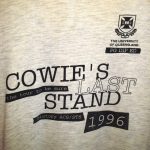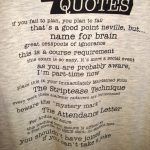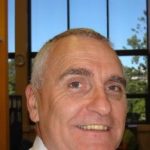Isn’t it the way, the historian is the last to know on contemporary events; so consumed in research and writing on years gone-by and places very distant to where we are now? I popped my head up to read the “National Archives of Australia, Brisbane Office Consultative Forum Minutes of Meeting, Wednesday 29 July 2015”, to find, in the report of the Queensland History Teachers Association, of the –
“Recent deaths – one of our Patrons, Dr H R Cowie (Russ) and a former President Ian Gray have passed away recently. Russ was a foundation member and Life time member of the Association. Ian had been a member for 30+ years and in recent years had been a presenter for our Student seminars.”
My membership of the Queensland History Teachers Association was very brief and distant in time, as was also my two attempts at a career in teaching. The intelligent choice, retrospectively, was to stick to the passion and professional Geist, rather than conform to societal expectations of what a person ought to be doing as a career. To put it more simply, I was always a historian as a scholar, not a historian as a teacher, and educationally the real action is in being a scholar, not a teacher. We really only learn by doing what we love, and what is taught to us only supports us in what has to be ultimately self-motivating. Russell Cowie and Ian Gray understood that. They represented a high point in history education in Queensland. Both produced high-quality and locally-produced school textbooks which not only provided teachers with tools for lessons, but were very readable introductions, for Queensland secondary students, into history scholarship. Gray produced “Essentials of History” (1988), focusing on the skills of historical research, and “Inquiry 1” (1995), document-based text for senior modern history students. Cowie was a prolific history writer, and established the standard for substantial history reading in Queensland schools, primarily with “Challenge and Response: A History of the Modern World” (1976), co-written with J.H. Allsopp.
Cowie produced more than 25 history resource books, mostly as the general editor and prime writer. The output has never been seen before or after in Queensland history education, and sadly there is little understanding of what is lost in the lack of will to continue to produce large history tomes for the general readership of history students. Cowie and Gray brought critical ideas to history. In Cowie, we find an outstanding liberal internationalist. His historiography is now somewhat dated, but he was never afraid, as the weaker scholars are today, to put a well-structured argument together. He did not put style over substance, and challenged students grasp the terror of critical and continuous reading. Attention spans have shortened in the population and the online environment has created a need for more summative formats. Cowie and Gray understood these needs as well, even before the World Wide Web, and no student of Cowie will ever forget the mountain of newspaper clippings and cartoons, especially the cartoons of David Low. In the time before the online environment, Cowie taught us that these were the devices to capture the attention of the reader to highlight the salient features. Gray became well-known for his ability to use new technologies to help students in their own learning – individually and collaboratively.
In 1972 Russell Cowie became a lecturer in School of Education at the University of Queensland, after teaching in New Zealand, England, and in Brisbane at Brisbane Grammar School, and at The Church of England Grammar School. He proved himself more history scholar than educator, without losing any flare for teaching. By 1952, Cowie had obtained his Bachelor of Arts and Master of Arts (honours) degrees at the Otago University in New Zealand. However, Cowie did not obtain his educationalist qualifications until he had already established himself as a history educator; with a Bachelor of Education in 1974, and his doctorate in 1985 (he had previously a one-year course at the Auckland Teacher’s College). In 1994 he was the recipient of the University of Queensland’s Excellence in Teaching Award. In 2012 Cowie was awarded the Medal of the Order of Australia (OAM) for his services to the community as a historian and as an educator.
Ian Gray studied at La Trobe University, obtaining his Batchelor of Arts (honours), and his Diploma of Education, by 1973. In 1983 Gray completed his Masters of Education at the University of Queensland for a thesis which looked at the history of History teaching from 1953. Gray had been active in the Queensland History Teachers Association since 1978, and had been one of its Executive Members from 1979 to 2008. In the schools, Gray was an outstanding leader in the field of teaching. He was the Social Science Co-ordinator at Villanova College (1984 –1991), the Head of History Department at Brisbane Girls’ Grammar School (1991 – 1996), the Project Officer Queensland Schools Curriculum Council (1997 – 2000), the Head of Social Science Department (2001 – 2006) and Director of eLearning (2007 – 2012) at Somerville House. In “retirement” Gray took on a new career as a historian and eLearning Consultant.
History ought to be personal, and why should we care if it is not. I do care about the passing of Russell Cowie and Ian Gray because I came to know them very briefly in 1996, and at a crucial turning-point in my life, and as well as for Cowie. One of the surviving artefacts that I have of my own personal history is a tee-shirt which reads on the front, “Cowie’s Last Stand – the tour to be sure, History ACS/STS 1996”. It was Cowie’s last hurrah before his retirement. On the back of the tee-shirt was a list of “Cowie Quotes”. The second quote listed was, “that’s a good point Neville, but…”. I was an odd-ball history post-doctoral scholar in a class of “year-one” educationalist post-graduates. It was very frustrating for me in the disjunction between history as academic scholarship and history education as teacher secondary education practice.
“Thank God”, I was able to find my way out of the latter back to my original pathway, although the journey homeward was something like Homer’s Odyssey. Nevertheless, my encounter with the giants of Queensland history education was an important period of learning, even if I had wished it another way. I had got to know Ian Gray, because my pre-service teaching practicum was at Brisbane Girls’ Grammar School when Gray was Head of History Department. Unfortunately, or perhaps fortunately in the long view, completing a practicum at a private school was the Kiss of Death from the perspective of Education Queensland, and state education has never been interested in an idea of a scholarly teacher. It is no doubt why Cowie and Gray worked in the private school sector, because they exemplify what it is to be a scholarly history educator. It is the passion to want to learn much more yourself than you can ever possibly teach others to learn, and it is the desire to be rigorous in learning, and foremost to always to seek further understanding. This is the history that Russell Cowie and Ian Gray taught me.




